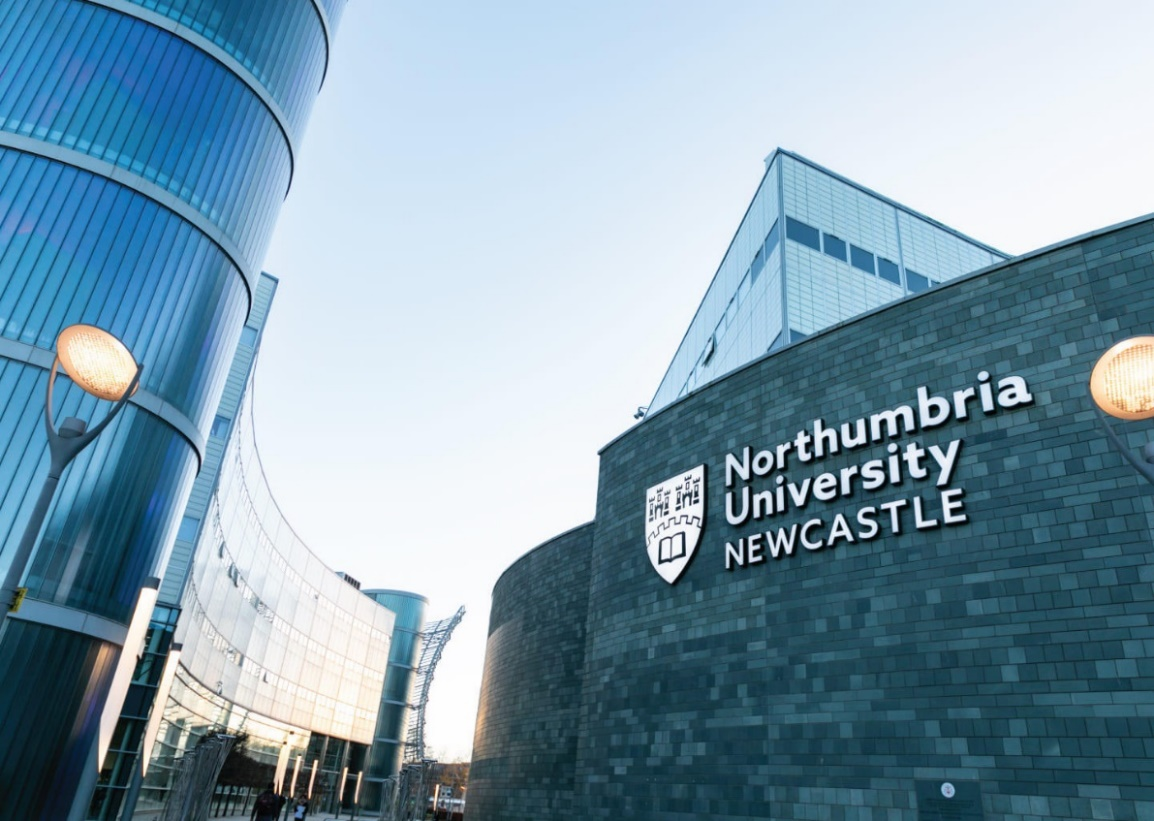Exploring Community Engagement: Identity, (In)equality, and Cultural Representation
Organizer:
Northumbria University
Date:
September 29th, 2025 (UTC+1)
Symposium Chair:
Dr. Nafhesa Ali
Assistant Professor in Sociology and Criminology at Northumbria University
Personal Bio:
Dr. Nafhesa Ali is an interdisciplinary Sociologist and Assistant Professor in Sociology and Criminology at Northumbria University. Nafhesa’s expertise spans across intersectional lives, specifically examining gender, age and migration, and creative methodologies. She is the Lead for the North East Race, Migration and Hopeful Futures IDRT at Northumbria University, UK. Nafhesa’s publications include her latest book, Older South Asian Women’s Experiences of Ageing in the UK: Intersectional Feminist Perspectives (2024), and journal publications in Policy Studies, Local Environment, Sexualities, Ethnicities, and Ethnic and Racial Studies.
Call for Papers
Background:
This research symposium will examine how community engagement and social structures influence how individuals and groups interact within societal frameworks shaped by identity, power, and representation. This area of study critically examines how class, gender, and ethnicity influence access to resources, participation in public life, and visibility within cultural narratives. Scholars from Humanities and Social Sciences draw from sociology, anthropology, cultural studies, and critical theory to analyse the ways in which social inequalities are embedded in everyday interactions and institutional practices. Literature and fieldwork play a key role in illuminating these dynamics, offering insights into marginalised voices and the mechanisms of exclusion. Representations in media, policy, and public discourse often reflect and reinforce dominant social structures, making it essential to question whose identities are visible and whose are silenced. This research not only uncovers patterns of inequality but also emphasises the transformative potential of inclusive engagement and culturally sensitive representation in fostering more equitable communities.
Goal/Rationale:
The goal of this research is to critically examine how community engagement practices and cultural representations reflect and reinforce existing social structures and inequalities.
Despite growing recognition of diversity and inclusion, many communities continue to face systemic barriers that limit their participation and visibility. These disparities are often perpetuated through institutional frameworks, media portrayals, and academic narratives that marginalise certain voices while privileging others. This research seeks to address the gap between community engagement theory and its practical application, emphasising the need for approaches that are genuinely inclusive and responsive to local contexts.
Recent advances in participatory research methods, digital ethnography, and intersectional analysis offer valuable tools for uncovering hidden narratives and fostering equitable engagement. By integrating these methodologies, the research aims to highlight best practices and propose frameworks that challenge dominant paradigms. Ultimately, the study aspires to support more inclusive policy-making, educational initiatives, and cultural practices that recognize and uplift marginalised identities, fostering a deeper understanding of how identity and inequality intersect within social structures.
Scope and Information for Participants:
This symposium invites researchers from various disciplines to examine critical themes surrounding community engagement, cultural representation, and social equity. Through interdisciplinary dialogue, the event seeks to explore how theoretical frameworks, institutional practices, participatory methodologies, media narratives, policy initiatives, and educational approaches influence marginalized communities and shape societal understanding.
Topics
The main topics of this symposium are listed below.
Culture & Sociology
- Digital Sociology
- Sociology of Climate Change
- Migration and Globalization
- AI and Society
- Sociology of Technology
- Social Media Impact
- Post - Colonial Sociology
- Sociology of Mental Health
- Inequality and Social Justice
- Gender Studies in Sociology
- Core Fields (e.g., Theoretical Sociology, Historical Sociology)
- Specialized Areas (e.g., Urban Sociology, Criminology, Rural Sociology)
History & Philosophy
- Ethics and Applied Philosophy
- Metaphysics and Epistemology
- Political Philosophy and Governance
- Philosophy of Science and Technology
- Environmental and Climate History
- Military and Diplomatic History
- Religious and Cultural History
- Social Movements and Public History
- Post-Colonial Studies and Global History
- Philosophy of Mind and Consciousness
Meanwhile, submissions aligned with the overall conference theme are also welcome.
Literature & Translation
- Contemporary and New Century Literature
- Literary Theory and Criticism
- Digital and Network Literature
- Gender Studies in Literature
- Cross-Cultural and Literary Translation
- Technical Translation and Localization
- Classical and Ancient Literature
- Multimedia Translation and Adaptation
- Regional and Comparative Literature
- Environmental and Eco-Criticism in Literature
- Literature and Poetry
Journalism & Mass Media
- AI in Journalism
- Digital Transformation in Media
- Social Media Journalism
- Data Journalism
- VR and AR in Media
- Blockchain and Media Ownership
- Ethics in Digital Media
- Influencer and Social Media Journalism
- Cross-Platform Journalism
- Public Interest Media
- Traditional Sectors
- (Print Media, Electronic Media, Opinion Journalism)
- Specialized Journalism Types
- (Investigative, Political, Entertainment Journalism)
- Film and Film Production
- Photography and Film Production
- Theater and Film Studies
Fine Arts & Design
- Artificial Intelligence in Art
- Visual Arts
- Generative Art
- Immersive Installations
- NFTs and Digital Ownership
- Interactive Art
- Data Visualization Design
- Sustainable Art Practices
- Contemporary Art
- Art Criticism
- Animation Production
- Music and Dance Studies
- Bio-Art and Biodesign
- Traditional Media (Drawing, Painting, Sculpture)
- Digital Media (3D Animation, UX Design, Corporate Design)
- Commercial Design (Advertising, Editorial Design)
Submission:
Prospective authors are kindly invited to submit full papers that include title, abstract, introduction, tables, figures, conclusion and references. It is unnecessary to submit an abstract in advance. The deadline for general submission is September 22, 2025. Each paper should be no less than 4 pages. One regular registration can cover a paper of 6 pages, and additional pages will be charged. Please format your paper well according to the conference template below before submission. Paper Template Download
Please prepare your paper in both .doc/.docx and .pdf format and submit your full paper by email with both formats attached directly to sympo_newcastle@icihcs.org
Important Dates
Submission & Payment
|
Fees
|
Publication
Accepted papers of the symposium will be published in Communications in Humanities Research (Print ISSN 2753-7064), and will be submitted to Conference Proceedings Citation Index (CPCI), Crossref, CNKI, Portico, Google Scholar and other databases for indexing. The situation may be affected by factors among databases like processing time, workflow, policy, etc.
Proceeding Title: Communications in Humanities Research
Press: EWA Publishing, United Kingdom
ISSN: 2753-7064(print) / 2753-7072(electronic)
* The papers will be exported to production and publication on a regular basis. Early-registered papers are expected to be published online earlier.
This symposium is organized by ICIHCS 2025 and it will independently proceed the submission and publication process
Venue:
Yunnan University, Cuihu N Rd, Wuhua District, Kunming, Yunnan, China, 650106Sutherland Building, Newcastle-Upon-Tyne NE1 8ST, Northumbria University, UK

VISA:
Welcome to GOV.UKIn order to ensure the information is correct and up to date, there may be changes which we are not aware of. And different countries have different rules for the visa application. It is always a good idea to check the latest regulations in your country. This page just gives some general information of the visa application.
UK Visa Information
What you need to do
- Check if what you plan to do in the UK is allowed as a Standard Visitor.
- Check you meet the eligibility requirements.
- Check if you need to apply for a visa to visit the UK.
- Apply for a Standard Visitor visa online - if you need one.
Check you meet the eligibility requirements
You must have a passport or travel document to enter the UK. It should be valid for the whole of your stay.
You must be able to show that:
- you'll leave the UK at the end of your visit
- you're able to support yourself and your dependants during your trip (or have funding from someone else to support you)
- you're able to pay for your return or onward journey (or have funding from someone else to pay for the journey)
- you'll not live in the UK for extended periods through frequent or successive visits, or make the UK your main home
Check if you need a visa to visit the UK
Depending on your nationality, you'll either:
- have to apply for a Standard Visitor visa before you travel to the UK
- be able to visit the UK for up to 6 months without needing a visa
You can check if you need a visa before you apply.
If you do not need a visa, you must still meet the Standard Visitor eligibility requirements to visit the UK. You may be asked questions at the UK border about your eligibility and the activities you plan to do.





